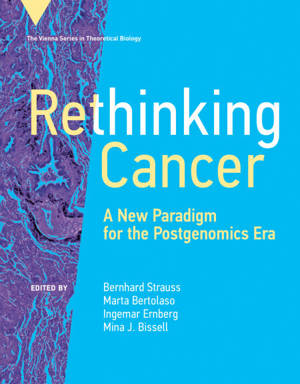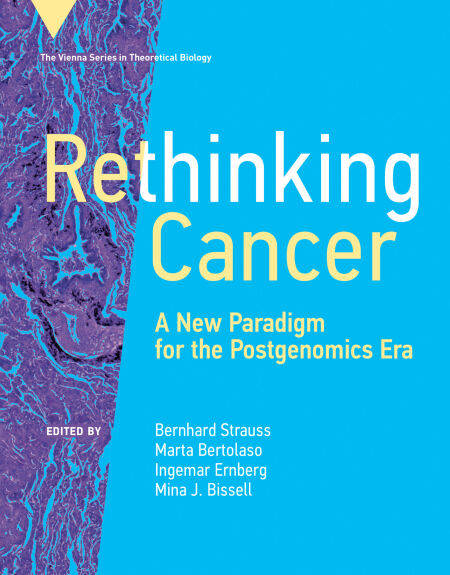
Bedankt voor het vertrouwen het afgelopen jaar! Om jou te bedanken bieden we GRATIS verzending (in België) aan op alles gedurende de hele maand januari.
- Afhalen na 1 uur in een winkel met voorraad
- In januari gratis thuislevering in België
- Ruim aanbod met 7 miljoen producten
Bedankt voor het vertrouwen het afgelopen jaar! Om jou te bedanken bieden we GRATIS verzending (in België) aan op alles gedurende de hele maand januari.
- Afhalen na 1 uur in een winkel met voorraad
- In januari gratis thuislevering in België
- Ruim aanbod met 7 miljoen producten
Zoeken
Rethinking Cancer E-BOOK
A New Paradigm for the Postgenomics Era
€ 59,14
+ 59 punten
Omschrijving
Leading scientists argue for a new paradigm for cancer research, proposing a complex systems view of cancer supported by empirical evidence.
Current consensus in cancer research explains cancer as a disease caused by specific mutations in certain genes. After dramatic advances in genome sequencing, never before have we known so much about the individual cancer cell--and yet never before has it been so unclear what to do with this knowledge. In this volume, leading researchers argue for a new theory framework for understanding and treating cancer. The contributors propose a complex systems view of cancer, presenting conceptual building blocks for a new research paradigm supported by empirical evidence.
The contributors first discuss the new research framework in terms of theoretical foundations and then take up the relevance of a systems approach, reviewing such topics as nonlinearity, recurrence after treatment, the cellular attractor concept, network theory, and non-coding DNA--the "dark matter" of our genome. They address the temporality of cancer progression, drawing on evolutionary theory and clinical experience. Finally, they cover the dominant role of the tissue microenvironment in cancer, analyzing topics including altered metabolic pathways, the disease-defining influence on metastasis, and the interconnectedness of different environmental niches across levels of organization.
Current consensus in cancer research explains cancer as a disease caused by specific mutations in certain genes. After dramatic advances in genome sequencing, never before have we known so much about the individual cancer cell--and yet never before has it been so unclear what to do with this knowledge. In this volume, leading researchers argue for a new theory framework for understanding and treating cancer. The contributors propose a complex systems view of cancer, presenting conceptual building blocks for a new research paradigm supported by empirical evidence.
The contributors first discuss the new research framework in terms of theoretical foundations and then take up the relevance of a systems approach, reviewing such topics as nonlinearity, recurrence after treatment, the cellular attractor concept, network theory, and non-coding DNA--the "dark matter" of our genome. They address the temporality of cancer progression, drawing on evolutionary theory and clinical experience. Finally, they cover the dominant role of the tissue microenvironment in cancer, analyzing topics including altered metabolic pathways, the disease-defining influence on metastasis, and the interconnectedness of different environmental niches across levels of organization.
Specificaties
Betrokkenen
- Uitgeverij:
Inhoud
- Aantal bladzijden:
- 432
- Taal:
- Engels
- Reeks:
Eigenschappen
- Productcode (EAN):
- 9780262362085
- Verschijningsdatum:
- 26/04/2021
- Uitvoering:
- E-book
- Beveiligd met:
- Adobe DRM
- Formaat:
- ePub

Alleen bij Standaard Boekhandel
+ 59 punten op je klantenkaart van Standaard Boekhandel
Beoordelingen
We publiceren alleen reviews die voldoen aan de voorwaarden voor reviews. Bekijk onze voorwaarden voor reviews.








